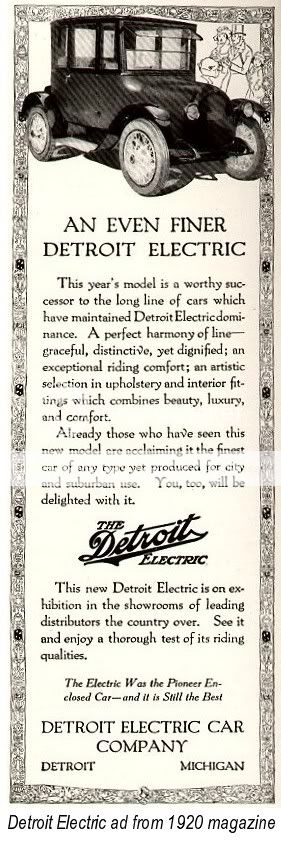Engyo
Prince of Dorkness!
No argument - but the specific application to on-the-road vehicles is quite recent.Batteries have been around longer than internal combustion engines.
Welcome to Religious Forums, a friendly forum to discuss all religions in a friendly surrounding.
Your voice is missing! You will need to register to get access to the following site features:We hope to see you as a part of our community soon!
No argument - but the specific application to on-the-road vehicles is quite recent.Batteries have been around longer than internal combustion engines.
Yeah I mean limited range compared to a petrol/deisel engine. With an electric car I also won't be able to pull into a electric station, charge the batter to full in a minute or two and leave like I can with a petrol car.
Cost, low mileage and charging time put me off.
Batteries have been used in cars for a century now. But I quibble....the point is that I expect improvement in battery technology to beNo argument - but the specific application to on-the-road vehicles is quite recent.
Awww, you're just sayin' that because of all that oil company stock...........................Batteries have been used in cars for a century now. But I quibble....the point is that I expect improvement in battery technology to be
slow in coming. Technology is already just about as mature as the IC engine, with room for improvement in both. It could even be that
IC engines have more potential for improvements in efficiency, eg, adiabatic engines, carbon fiber components, combustion chamber
improvements, alternative fuels, variable displacement, variable valve timing, increased diesel usage.
Oh, I wish I'd invested in that instead of other things. But I know people who were involved in battery research & development for many years.Awww, you're just sayin' that because of all that oil company stock...........................
These guys managed to get near 90% efficiency... and their turbines are fish-friendly:
Alden - Hydroelectric Turbine Design
The efficiency's comparable to other modern designs... though the fish-friendliness looks to be something new.
More on the efficiency of hydroelectricity:
Hydroelectric Power Generation
No argument - but the specific application to on-the-road vehicles is quite recent.

Not much anymore...they still use wires. As recently as the 1980s, I worked with the guys at GM who were on their electric van program.I wonder how much technology from that era is still used in today's electric & hybrid cars? Especially since they seemed to take a 90 year vacation..............
I drove an Elantra as a rental car for a while - I liked it.I looked at one of these today. 40mpg and not ugly or expensive.
Hyundai Elantra: Safe & Stylish Cars Most Interior Among Small Cars | Hyundai
I looked at one of these today. 40mpg and not ugly or expensive.
Hyundai Elantra: Safe & Stylish Cars Most Interior Among Small Cars | Hyundai
Cheap fuel stingy ordinary cars....now there's a technology that's an available technology.I like it.....
The body is really similar to the volt. While it's not all electric or electric to gas like the Volt, it's considerably cheaper than the volt. Heck, it appears to be cheaper than the Prius as well.....
hhmmmmm, choices, choices....I'm putting that one on my list of possibilities.
Another thought: the limited range of electric vehicles probably means that their market appeal is almost exactly opposite to the types of driving environment where they'll do the most good.I guess the question is whether the decrease in emissions from the electric vehicles makes up for the increase in emissions for everyone else. Since this tradeoff is dependent on congestion, it probably depends quite a bit on how bad congestion is in your area already... IOW, if you're out in the country where there is no "rush hour", then an electric vehicle is probably a wise choice. If you're in gridlock in the big city, then you're probably doing a lot worse by driving an electric vehicle than you would be by taking the bus or the train.
Page 6 and 7 of this report are especially relevant, where they categorize and quantify the average total cost of auto use, and then consider what the effects of increased-efficiency vehicles would be on those costs:Interesting.
For example, if pollution and resource externalities total 6¢ per vehicle-mile, a strategy that halves per-mile energy consumption and emissions by raising fuel economy from 20 to 40 mpg provides benefits worth 3¢ per vehicle-mile, or $375 per year for a vehicle driven 12,500 annual miles. However, if motorists respond by driving 10% more miles (a typical rebound effect), energy and emission reduction benefits decline 10% to $338, and mileage-related costs increase (Figure 3). A 10% increase in congestion, crash, road and parking externalities totals 2.7¢ per vehicle-mile or $338 per year, offsetting the energy and emission reduction benefits.
